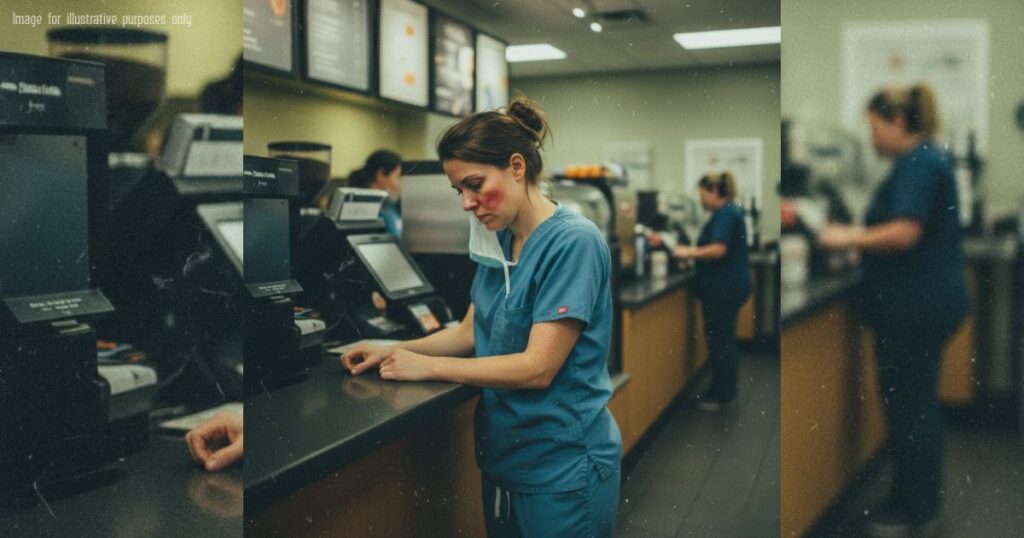It can be the waiting room where you make room.
It can be a handwritten note addressed to “Unit 4 South” with nothing inside but gratitude and maybe a box of peaches that taste a little like July.
I ran into David—yes, that David—months after that first night.
Not in the ER, but in the dairy aisle, where real life pretends it isn’t holy.
His badge was clipped to his belt, half-hidden under a hoodie. He looked like a man trying to choose between brands of milk and also between sleeping and saying yes to the text he’d just received from the charge nurse.
“You don’t know me,” I said, and he smiled because that is the first sentence of a thousand families.
“You washed a man’s face one night,” I said. “You gave him back his name.”
He laughed like he was embarrassed to be seen, and then he did what nurses do—he turned the moment away from himself. “How’s your dad?” he asked.
“Walking,” I said. “Stubborn.”
“Good,” he said. “Stubborn is my favorite discharge plan.”
We stood there like strangers who’d borrowed a little life from each other and returned it in better shape.
Before he left, I said the only words that felt honest. “Thank you for being the person you are when nobody’s watching.”
He nodded like he’d just been handed a cup of water at mile twenty. “Thanks for seeing,” he said.
Maybe that’s the real work of the rest of us—not to flatten nurses into saints or slogans, but to see them in their whole, ordinary, extraordinary humanity.
To speak up when they are treated like a line item. To teach our kids that the bravest people in the room often wear shoes you’ve never noticed.
I still have Shannon’s name written on a scrap of paper in a drawer I open when the house is quiet and the memory of that winter night returns like weather.
Sometimes I picture her walking into another room where the hallway is the waiting room and saying her name to the family who most needs to hear it.
Sometimes I picture Maria in that memory care unit, telling another woman that her mother loves her, loves her, loves her.
I imagine the smile that follows, the way a storm inside a mind can settle for ten minutes of grace.
And sometimes I picture the nurse I will one day need at the very end, the one who will take my hand and make the room gentle.
I hope I will remember to say the thing I have practiced for years now when I pass them in the wild.
Not “hero,” which is too easy.
But “I see you. I respect you. And what you do matters more than most of us will ever be able to say.”
If the first hand we hold is often a nurse’s, and the last hand too, then maybe the measure of a life well lived is simple: did we learn, somewhere between those two hands, to honor the people who steadied us?
Part one taught me to look.
Part two has taught me to keep looking, and to say thank you out loud.
Thank you so much for reading this story!
I’d really love to hear your comments and thoughts about this story — your feedback is truly valuable and helps us a lot.
Please leave a comment and share this Facebook post to support the author. Every reaction and review makes a big difference!
This story is a work of fiction created for entertainment and inspirational purposes. While it may draw on real-world themes, all characters, names, and events are imagined. Any resemblance to actual people or situations is purely coincidenta


